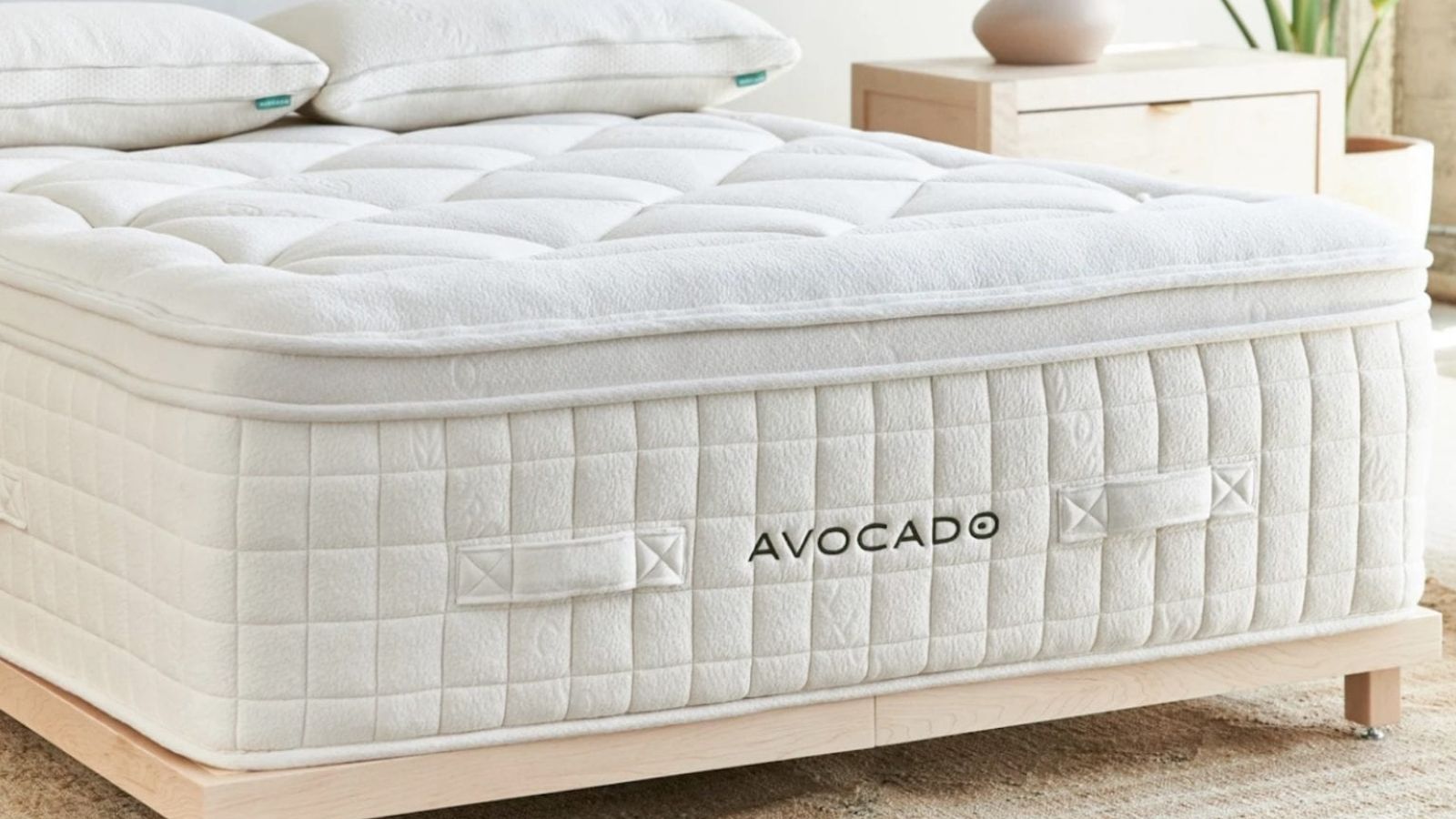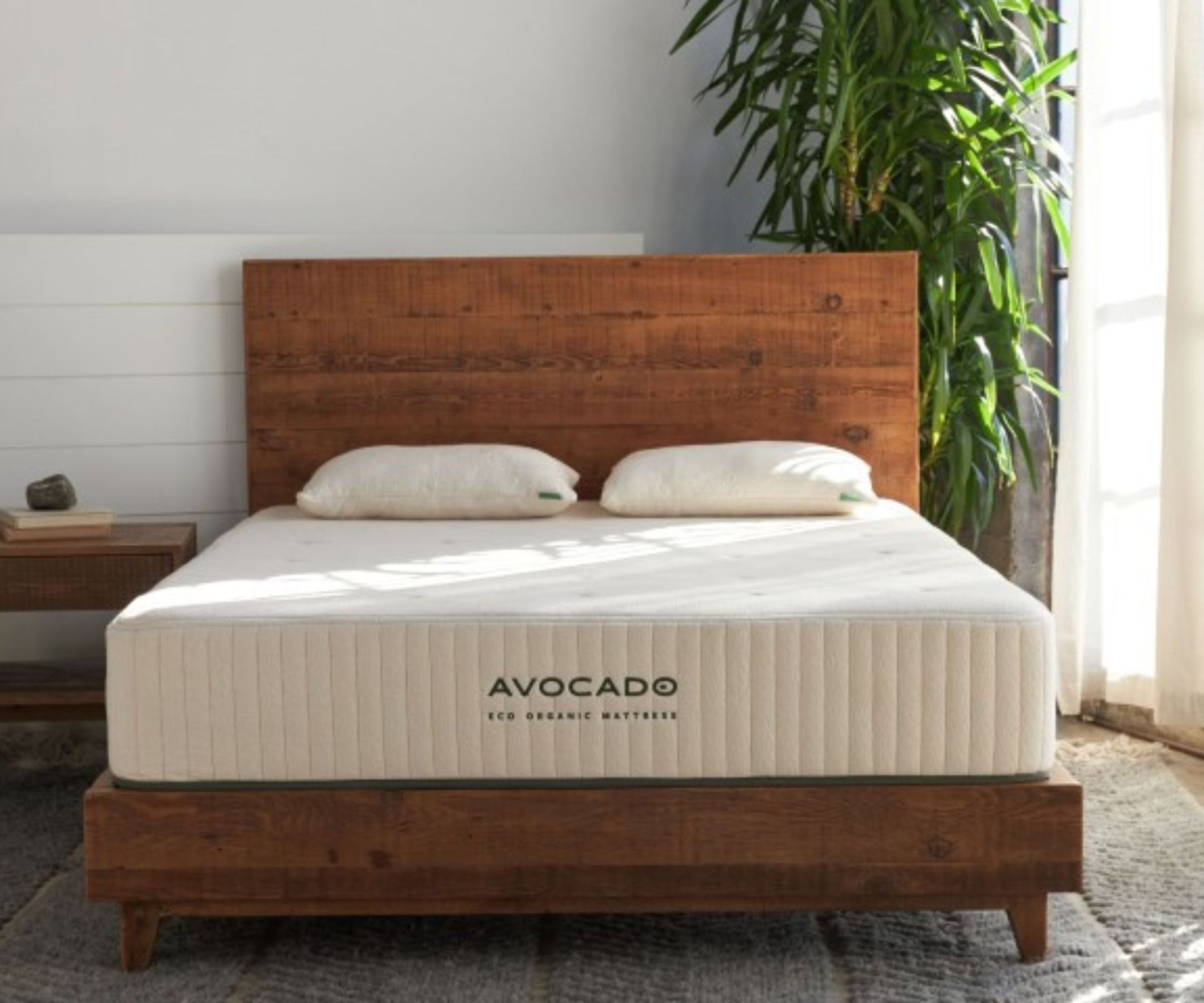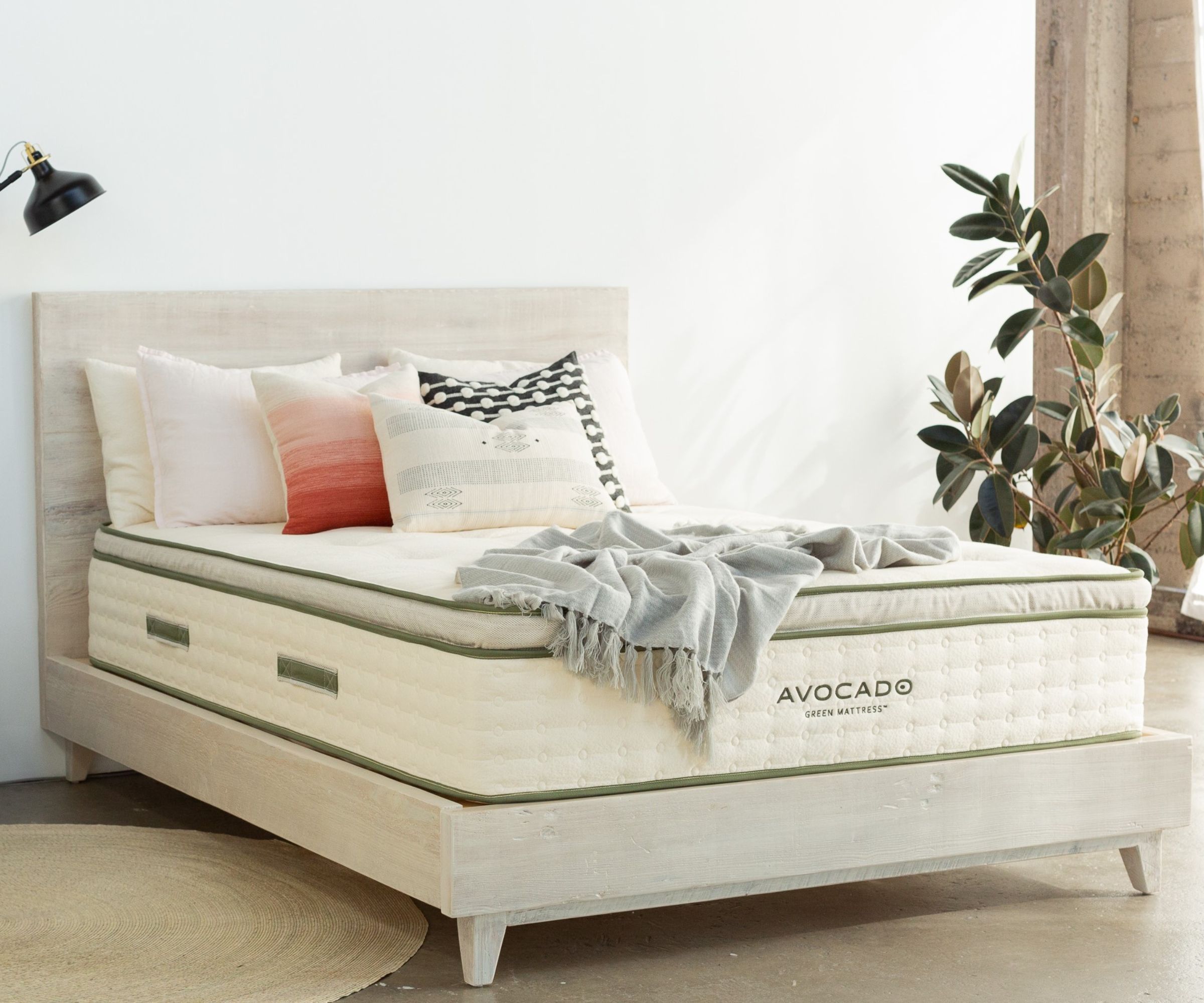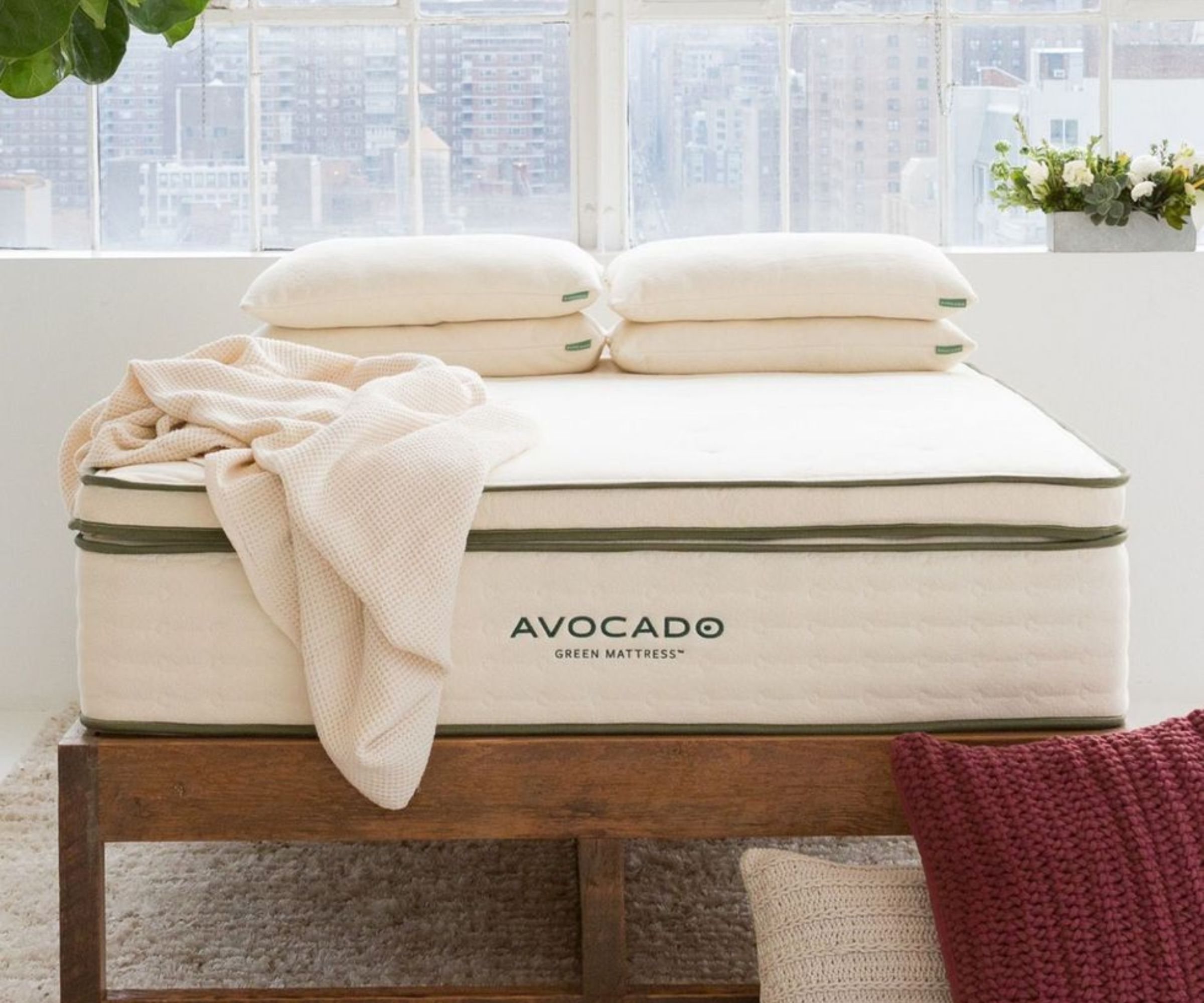
Avocado Mattress is one of America's best-loved mattress brands. Their latex products are listed as 'natural', 'organic', and 'free from synthetic and non-toxic materials'. Last April, Avocado faced a lawsuit that questioned the legitimacy of these claims.
Following lab testing, plaintiffs Akeem Pina and Richard Roberts filed a class action lawsuit, claiming that Avocado mattresses contained synthetic, toxic chemicals at 'virtually every stage of the latex manufacturing process'. If true, this would make Avocado Mattress guilty of 'knowingly misrepresenting their products' in violation of the California Consumers Legal Remedies Act.
On August 11, 2023, the case was dismissed – much to the delight of Avocado co-founder Mark Abrials, who maintains that the allegations were 'baseless' and 'unproven'. Another representative of the Avocado Mattress company says that they are 'glad to put this issue behind us'.
Avocado Mattress lawsuit dismissed
Since the lawsuit was dismissed, we've reinstated Avocado products in our best mattress and best mattress topper buying guides. Still, if you own anything from Avocado, you might be keen to learn more about the lawsuit and what it means for you, the consumer. This article should tell you everything you need to know about the Avocado Mattress lawsuit, from what was alleged to why it was dismissed and whether it's safe to buy from Avocado today.
What was the lawsuit?

Avocado claims that their latex products are organic, non-toxic, and biodegradable, made with entirely organic latex, wool, and cotton. Plaintiffs Akeem Pina and Richard Roberts commissioned lab testing to assess the veracity of these claims. Their 57-page complaint, which you can read in full at ClassAction.org, alleges that 'virtually every stage of [Avocado's] manufacturing process', from 'harvesting and stabilization to vulcanization and drying', involves the use of 'a litany of synthetic chemicals'.
Listed chemicals include Wingstay-L, pentyl furan, and naphthenic hydrocarbon oils, some of which must be labeled as potentially harmful under California's Prop 65. For this reason, the plaintiffs contest Avocado's MADE SAFE certification, as they allege that Avocado products are not made with '100 percent healthy ingredients'.
The plaintiffs refer to Avocado's ad content, which makes repeated reference to terms such as 'natural', 'eco', and 'organic'. 'At no time does Avocado disclose to consumers that it uses chemicals − let alone toxic chemicals – during the manufacturing process, and that those chemicals end up in the final products that consumers purchase and use,' the suit claims.
Now, I've spent hours reading the case notes. For me, the case falls apart on the question of 'chemicals', because there is no such thing as chemical-free latex foam. To make latex into foam, you have to vulcanize it, which means you introduce sulfur, zinc oxide, and antioxidants to the latex. Still more chemicals are used in the processing and preservation of the latex foam. 'It's an open secret in the natural mattress industry that some synthetic materials are always necessary to turn rubber tree sap into usable latex,' writes Leigh Matthews for LeafScore.
As of August 11, 2023, the case has been dismissed, so there is no publicly available information concerning what happened during the trial.
How did Avocado respond?

Right around the time that the case was dismissed, Avocado co-founder Mark Abrials published an article restating the company's natural credentials. According to their website, Avocado foam 'meets stringent organic criteria', a claim which is supported by an eco-INSTITUT label, as well as FSC and OEKO-TEX certification.
Mark maintains that Avocado relies on rigorous testing standards to make latex products that minimize environmental pollution and follow government guidelines. Mark also claims that Avocado messaging adheres to the marketing guidelines set by the Federal Trade Commission for clarity and accuracy.
Is it safe to buy from Avocado?

When you pay a premium for organic produce, you want to know that you're spending your money wisely. Now that the suit has been dismissed, there's no legal reason not to buy Avocado products.
We've reviewed the Avocado Green Mattress and the Avocado Mattress Topper and loved them for their cooling comfort. As of August 11, 2023, when the case was dismissed, we reinstated Avocado products into our bedding buying guides.
If you're still not sure about your Avocado mattress, I suggest you check your mattress warranty. Once you complete the 30-day trial, you can return your Avocado Green Mattress for up to a year after the purchase date, no questions asked.
This luxury latex hybrid is one of the top contenders for the title of 'best organic mattress'. The Avocado Green Mattress comes in three firmness levels to suit different sorts of sleepers: Firm; Medium; and Plush. The firmer feel is great for back and stomach sleepers, while side sleepers might appreciate the enhanced pressure relief of the Plush surface.
You can find more detail in our Avocado Green Mattress review.
Our expert tester, Antonia, gave the Avocado Organic Latex Mattress Topper the full five stars for cooling comfort and responsive support. I'd knock off half a star for the absence of straps, which makes it a little harder to keep your topper securely in place. Otherwise, I can't argue with its near-perfect performance.
You can find more detail in our Avocado Organic Latex Mattress Topper review.
Hear me out: wool makes a great thermoregulator and it's just the thing to keep the night sweats at bay. That's because wool is naturally moisture-wicking and able to hold up to a third of its weight in water, keeping you and your bed cool and dry.
We don't have a dedicated review for the Avocado Alpaca Duvet Insert, but you'll find it in our buying guide for the best warm comforters.
The Avocado Mattress lawsuit serves as a timely reminder to eco-conscious customers that words such as 'natural' and 'eco-friendly' are not protected terms in the US mattress market. To learn more about greenwashing, how to spot it and what to do about it, I suggest you read our expert explainer: 'are organic mattresses a hoax?'







